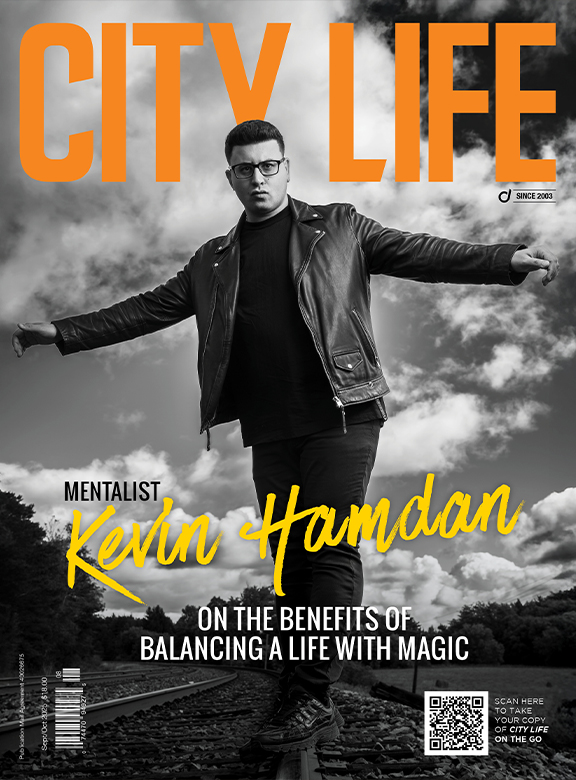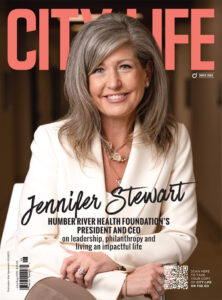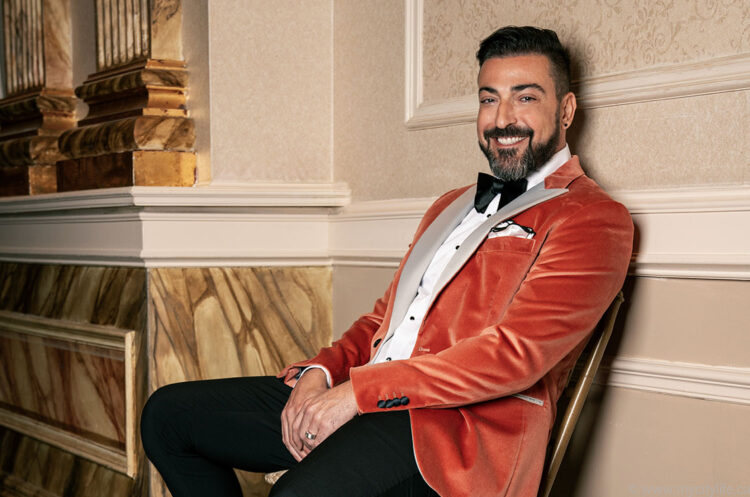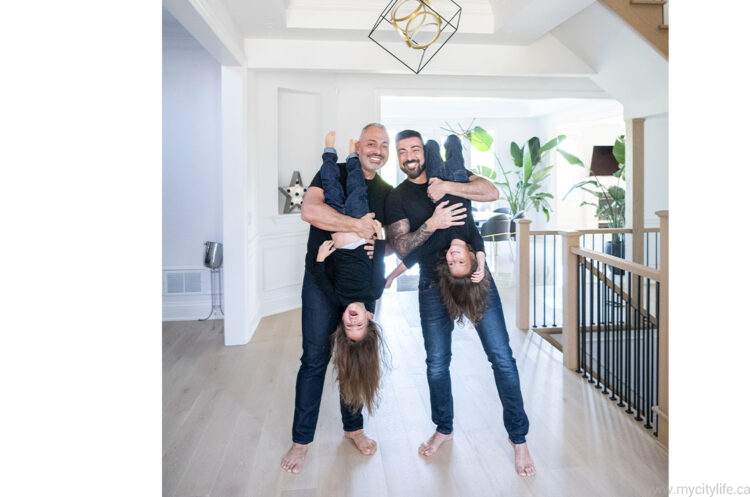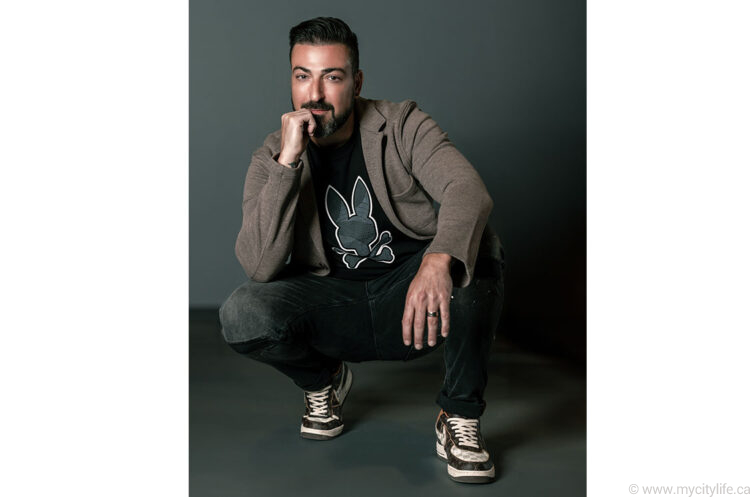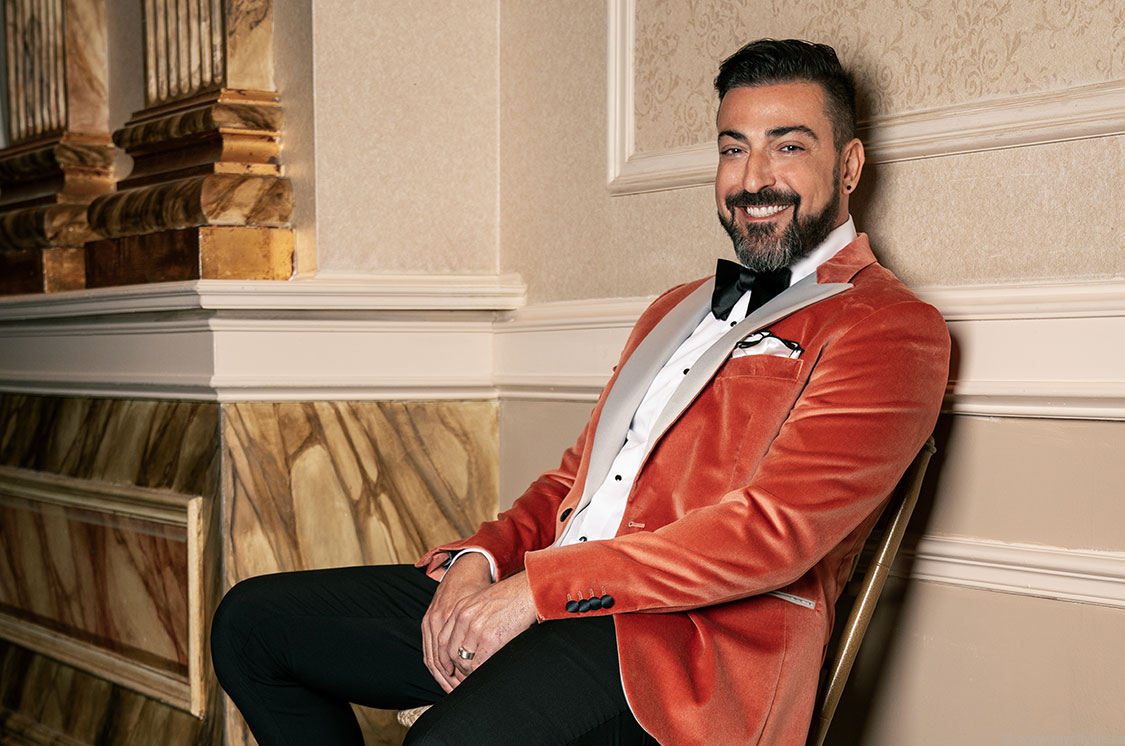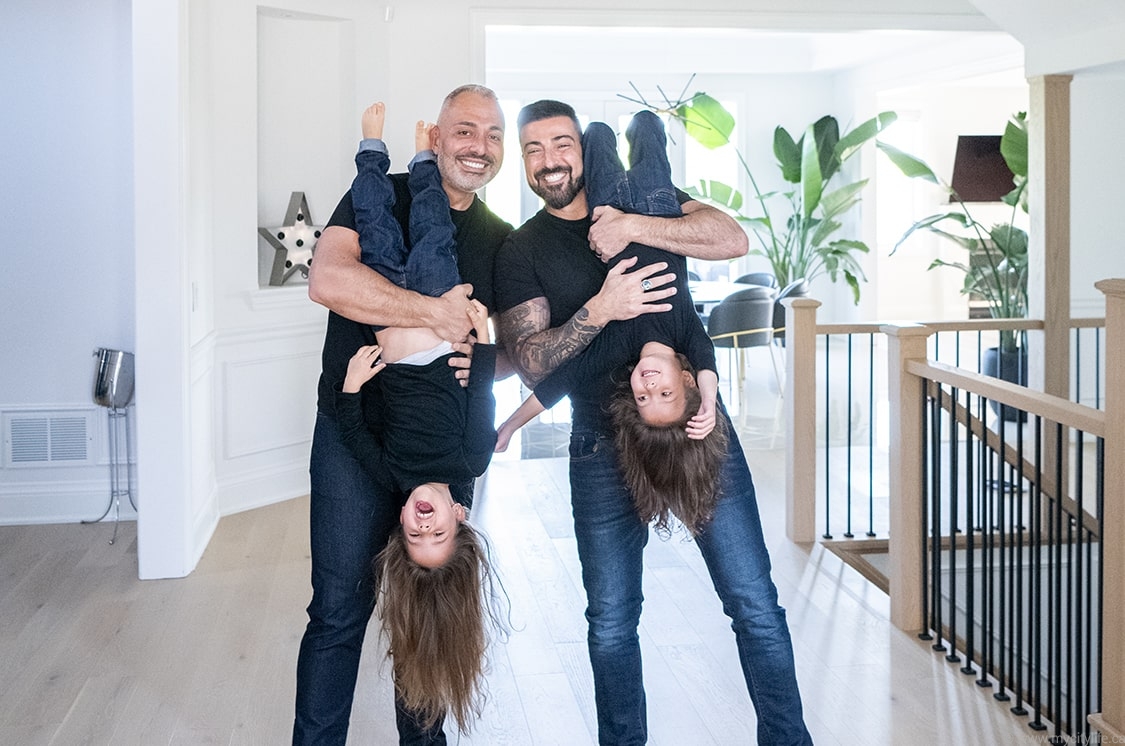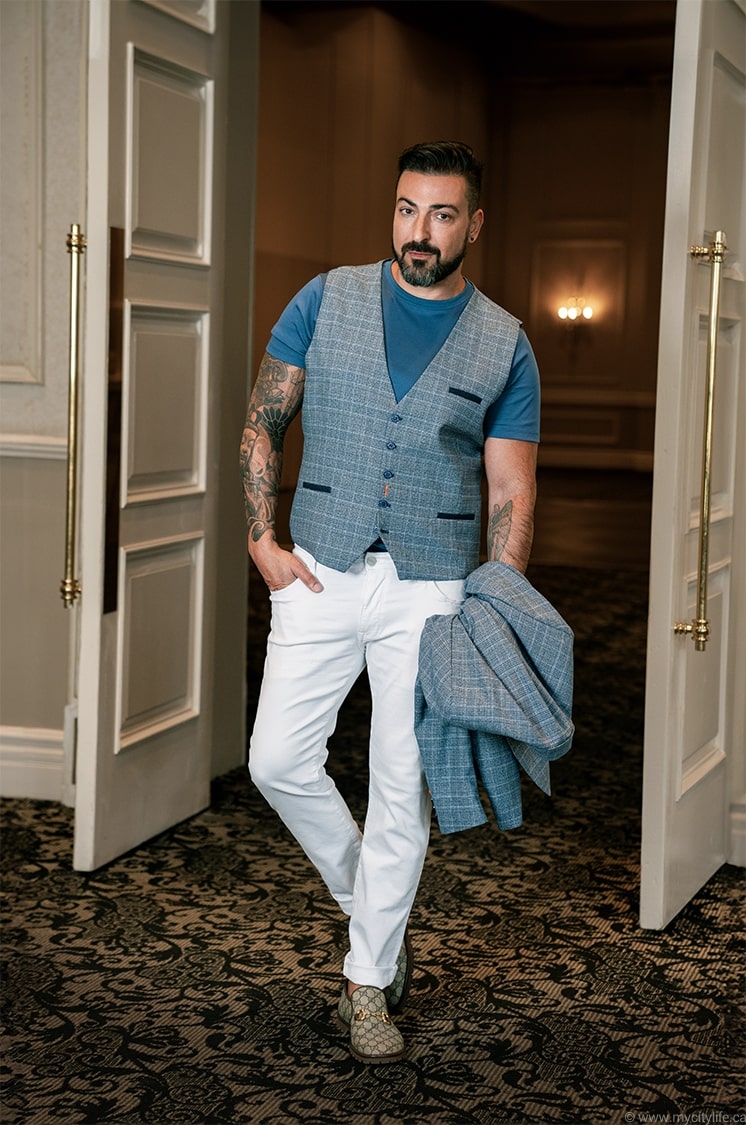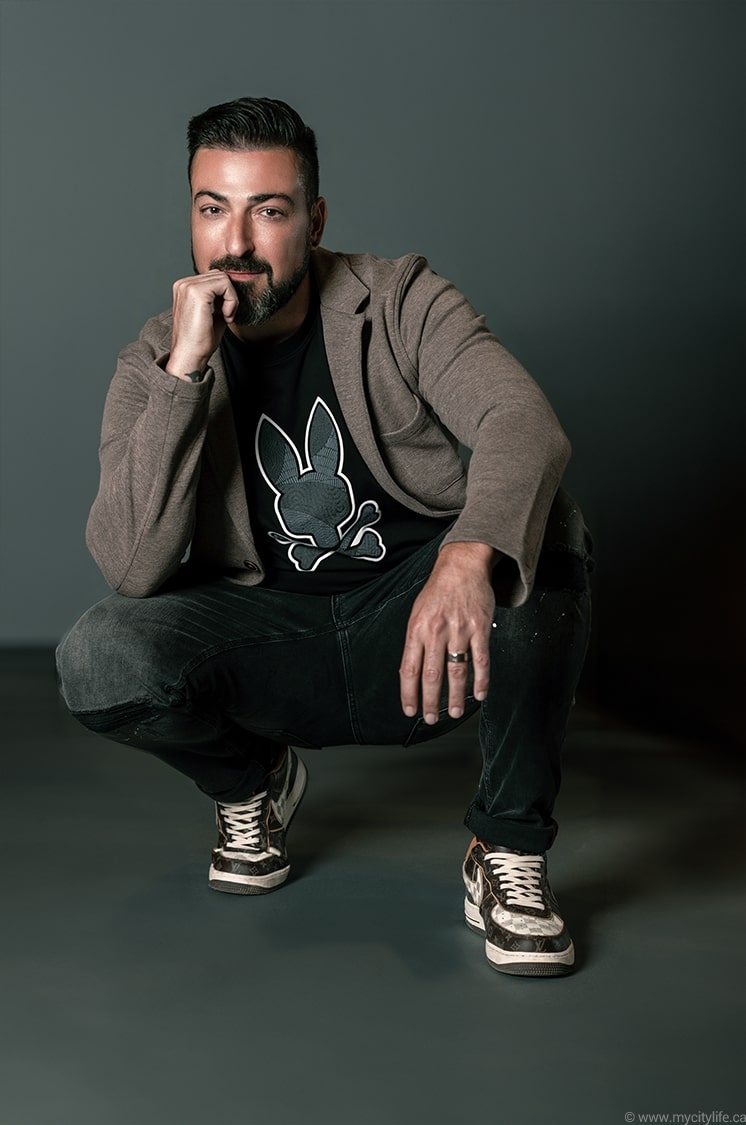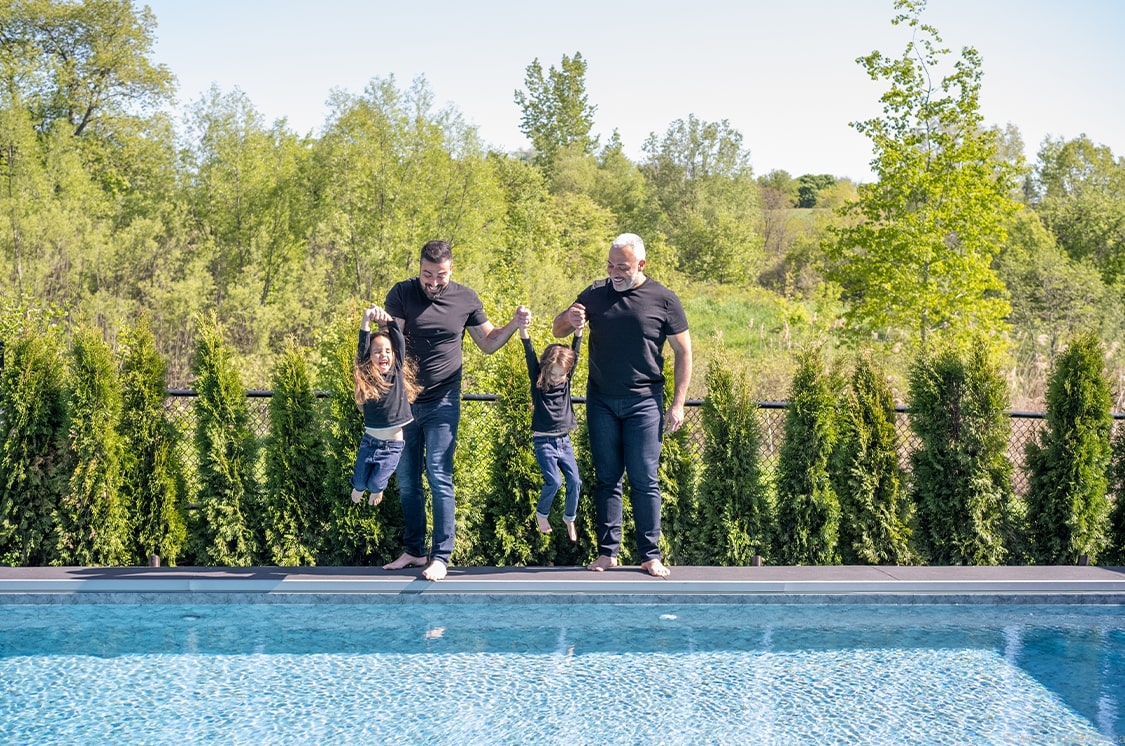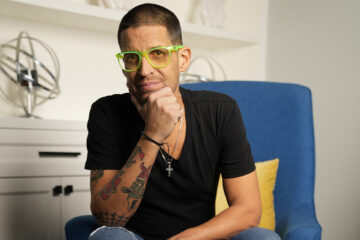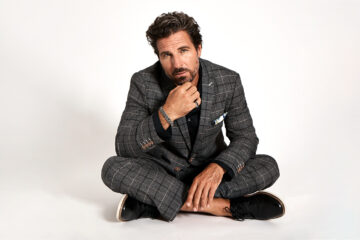Joseph Tito: The Dance Between Tradition And Authenticity
The odds were against Joseph Tito: he had everything money could buy, but the challenges of becoming a parent as a single gay man were significant.
Have you ever fought through what sometimes felt like insurmountable obstacles, steadfastly trudging the path because you were fuelled by the courage of your convictions? An internal monologue that asserts the need to pursue the thing that illuminates one’s very being — in truth, one’s life purpose — is the very essence of this courage, and the conviction comes from the confidence that we are doing what we believe is right, even when the majority of our peers do not agree.
That is the state of being that 37-year-old Joseph Tito, the extremely successful producer and director of the kind of high-profile shows that run on Netflix and the Food Network, was struggling to achieve as he stared out the 58th floor window of his Dubai hotel one lonely and scorchingly hot night.
“I had a great life; I was a jet-setter and I travelled anywhere I wanted to go. I had everything and my earnings, which were tax-free, allowed me to buy whatever I wanted. But I wasn’t happy — something was missing.”
Tito was, he says, in a dance between tradition and authenticity.
Born in Italy and immigrating to Canada with his parents when he was 5 years old, Tito grew up in a traditional household where family was everything, a nuclear unit gathered around the dining-room table, where each person bonded under the auspices of Nonna’s beguilingly delicious from-scratch meals.
It is no secret that one of the fundamental expectations in Italian families, certainly something that was instilled from a young age, is the mandate to find a suitable partner, get married and have kids.
And although having children as a gay man would add a certain layer of complexity to this scenario, Tito’s mom was always there for him, completely supportive, and she told him that together they would find a way.
“I HAD A GREAT LIFE: I WAS A JET–SETTER AND TRAVELLED ANYWHERE I WANTED TO GO.”
Tito reflects on a defining moment in his journey towards parenthood. In his 20s, he was with a partner who had two children, ages 4 and 6. They were together for a decade and Tito cherished the experience of being a step-parent. However, marriage was always something he desired and during that time same-sex marriages were not legally recognized.
Fast-forward to that night in Dubai when Tito looked around his hotel room, of high-end brand-name possessions surrounded by a luxurious collection — and felt, rather than a deep sense of accomplishment and purpose, an emptiness and loneliness that soon led to a life-changing epiphany.
“I was 37 years old and I thought it has got to be now or never,” Tito says.“I didn’t want to be 60 years old with a toddler in tow.”
Tito’s partner at the time expressed an interest in embarking on the surrogacy journey with him, but as time went on, Tito realized that his partner was nowhere near as committed to fatherhood as he was.
“I looked at the advantages and processes of adoption versus surrogacy but ultimately I realized, by watching a cousin go through the adoption process, that it was a very difficult procedure. Especially for a gay man.”
The fact that Tito was a single gay man who was travelling all over the world and not staying at one particular address for any length of time was another factor that he had to consider.
After researching the possibility of surrogacy in several countries, “I eventually found an agency in India that just opened up in Kenya, and they were advertising that same-sex couples and single males could go through the process,” Tito says.
A surrogate was found to carry the pregnancy in Kenya, and the process of implanting the embryos — eggs from the Indian clinic fertilized with Tito’s sperm — began.
Tito shares, “The embryo must develop for 21 days before it can be confirmed as successful. As someone who loves being in control, this process was especially difficult for me since I had no control over the outcome. With every failed attempt, I felt like a part of me died. It got to a point where even my mother told me not to update her until the surrogate pregnancy proved successful. There were four unsuccessful embryo transfers in total, and it weighed heavily on me. I started to question if maybe God did want me to be a dad — that maybe this wasn’t meant to be.”
“IT’S IMPORTANT TO INSTIL IN MY DAUGHTERS AND OTHER CHILDREN, THAT EVERY FAMILY IS UNIQUE AND SPECIAL IN THEIR OWN WAY.”
And then, in what can only be described as an earth-shaking surprise, Tito was informed that his surrogate mother was having twin girls.
As the time approached for the girls to be born in late November of 2018, Tito and his mom, whom he calls both a blessing and a light, travelled to Kenya to meet the girls and bring them home.
In a video posted to YouTube at that time, Tito and his mom can be seen entering the hospital in Mombasa, Kenya, their over-the-moon excitement and joy illuminating their faces. As he wipes his leaking-with-emotion eyes, it is evident that Tito is a father who wants nothing more in that moment than to see and to envelop his twin baby girls, Stella and Mia, with a jubilant, grateful heart. There is absolutely no question that these girls are wanted, that they are cherished new members of his family.
However, when it was time to bring the girls home to Canada in January of 2019, the unforeseen bureaucratic complications of doing so created so much emotional upheaval and financial stress that the process could only be described as devastating.
Even though Tito had done his due diligence ahead of time, he was blindsided by the news from the Canadian High Commission in Nairobi, which informed him that he could not get Canadian passports for his girls. Because he was a second- generation Canadian, his daughters had not automatically become Canadian citizens at birth. Instead, they’d need to be sponsored. And even though Tito had lived in Canada since he was 5 years old and his mom had been born in Canada, his situation was made even more complex because the surrogate mother was Kenyan and the egg donor was from India.
It was a devastating and emotional-roller-coaster nightmare that might need 6 to 12 months to sort out — which meant that Tito and the girls would have to stay in Kenya for that length of time — and Tito’s mom’s pills were running out. So were his finances, with his costs soaring well above $70,000.
“In true Italian fashion, my mother refused to go home. Even though there wasn’t much she could do, she put her needs aside for the greater good of the family,” Tito says.“At the end of the day, family and love transcend everything.”
Using his social platform to champion his cause, Tito reached out to his followers as a way to powerfully spread awareness of his situation.
“After I got stuck in Kenya, my community of followers went above and beyond to help me. Not only did they email and call people, they reached out to their Members of Parliament to bring awareness to my plight. As a result, my situation went viral. I even got an email from the office of the Canadian Prime Minister, Justin Trudeau. If it wasn’t for my community I would have been stuck in Kenya for a year,” Tito says.
Tito’s social profile and overall influencer status prompted TLN Media Productions to follow him over his journey’s three-year time frame, ultimately creating a documentary about him called A Happy Life — Una Vita Felice.
Although Tito says his purpose is not to tell people what to do, he does have a few salient pieces of advice concerning both surrogacy and parenthood.
“If you are financially stable, try to arrange for a surrogate who is as close to home as possible. And while you are going through the process, be willing to accept the fact that you have to give up control, trust in God, have faith and be patient,” he says.
Tito’s memoir, From Jet-Setter to Fatherhood, which he hopes to have published by May of 2024, details his surrogacy journey and the tough challenges and obstacles he faced and overcame. It is a period that at times Tito found extremely emotional to recount, and when he did he relived what were some of the most difficult times of his life. The book’s title is a fitting description of Tito’s life- changing decisions as he evolved from being a jet-setter to an “at-home Joe.”
“Basically, I am educating people on the fact that we all go through the same things in life — the same joys and the same challenges. We are all human,” he says.
His first book, The Twin Diaries: Stella and Mia Meet Papa (2023), is a children’s book that provides an overview of the realities of diverse family structures, offering valuable lessons about the meaning of family and what it means to be part of an unconventional one.
These days, Tito’s advocacy for surrogacy has positioned him front and centre on the issue with his 100,000- plus like-minded supporters on various social platforms as well as through his blog, The Dad Diaries, a space that allows him to shed light on the fact that not all families are alike. It is also a forum that allows Tito to help, lend an ear, and support others who are going through the surrogacy process.
“BASICALLY, I AM EDUCATING PEOPLE ON THE FACT THAT WE ALL GO THROUGH THE SAME THINGS IN LIFE — THE SAME JOYS AND THE SAME CHALLENGES. WE ARE ALL HUMAN.”
“The other day Mia asked me why she didn’t have a mom. It killed me. I felt so guilty — whether or not that was Italian Catholic guilt, I don’t know,” Tito says, laughing. “It’s important to instil in my daughters and other children that every family is unique and special in their own way. The most crucial lesson I want them to understand is that they are loved, and nothing else matters.”
The values instilled in Tito from a young age, the values that are the foundation of most Italian families, are the same ones that propel and inspire him as a father to his girls and husband to his partner, Frank, who Tito met when Stella and Mia were two years old.
At no point does Tito want Stella or Mia to feel guilty that they don’t have a mom. Instead, he makes sure that they understand just how blessed they are to have two nonnas, two grandfathers and two parents. The most impactful takeaways from Tito’s surrogacy experience and the best piece of advice he can give, he says, is not to care about what people think, because most of the time they’re really not thinking.
“I encourage people, no matter how they identify, to explore the joy of parenthood, the divine sense of love that demands nothing in return,” Tito says, with a lilt in his voice that is infused with gratitude and delight. Indeed, it is not hard to see that Stella and Mia are the centre of Tito’s universe, and the inspiration behind everything that he does.
“Stella and Mia have opened my eyes to the beauty in the world, prompting me to re-evaluate and cherish things I used to take for granted,”Tito shares.
thedaddiaries.com
thedaddiaries.ca
INTERVIEW BY MARC CASTALDO
PHOTOS BY EMAD MOHAMMADI
WARDROBE BY PER LUI
PHOTO SHOOT LOCATION AT CHÂTEAU LE JARDIN
